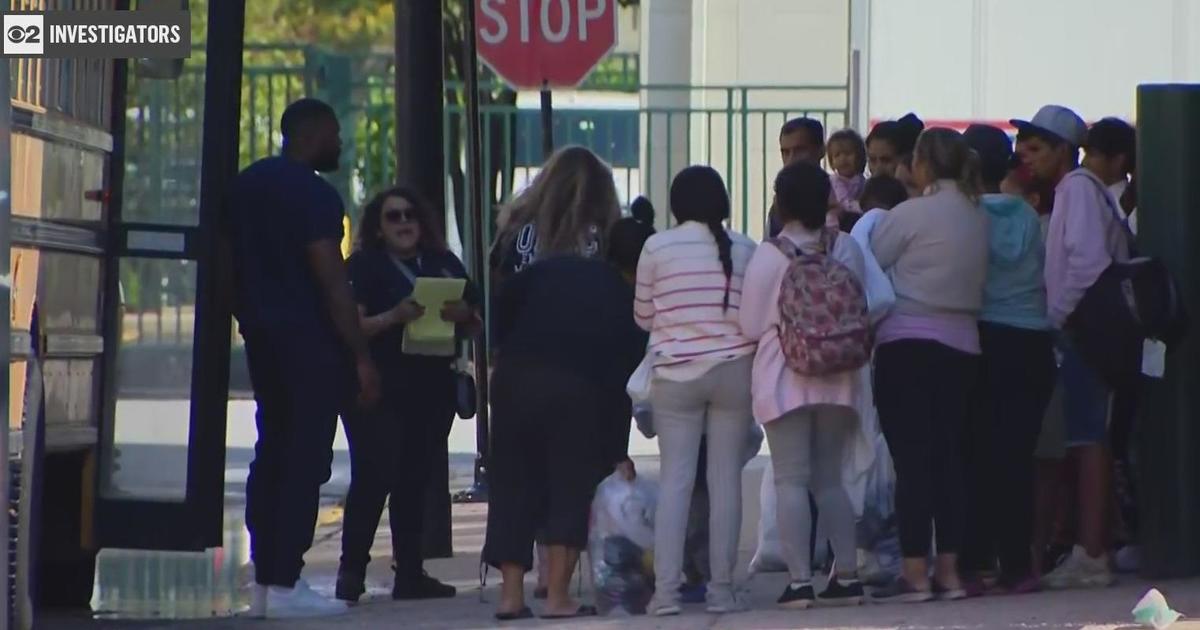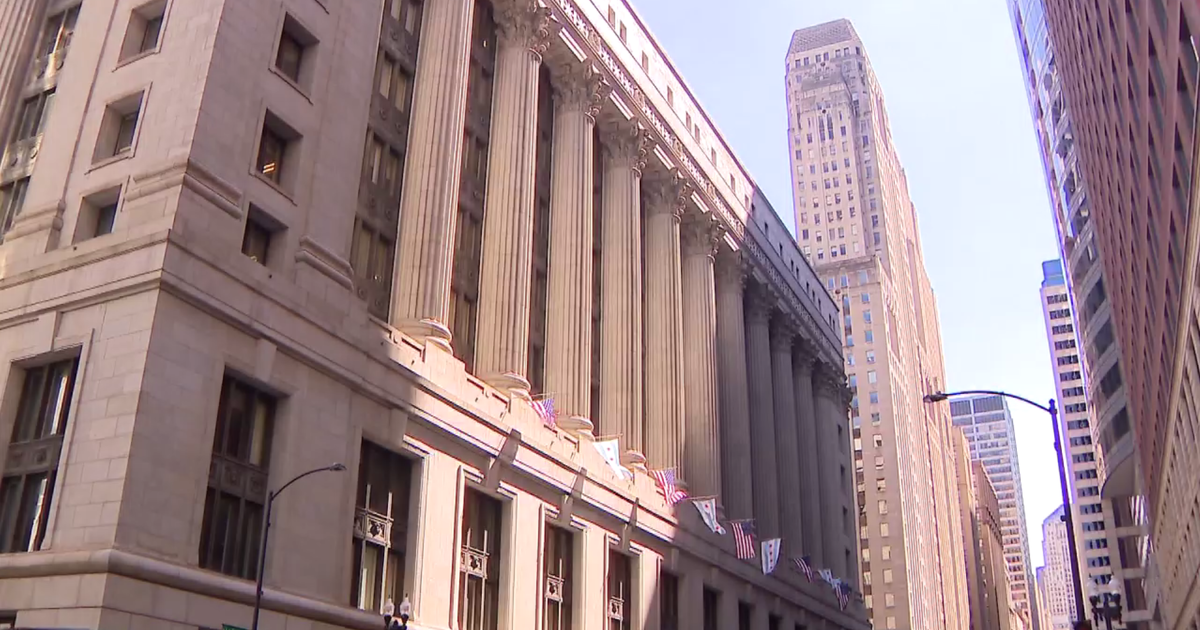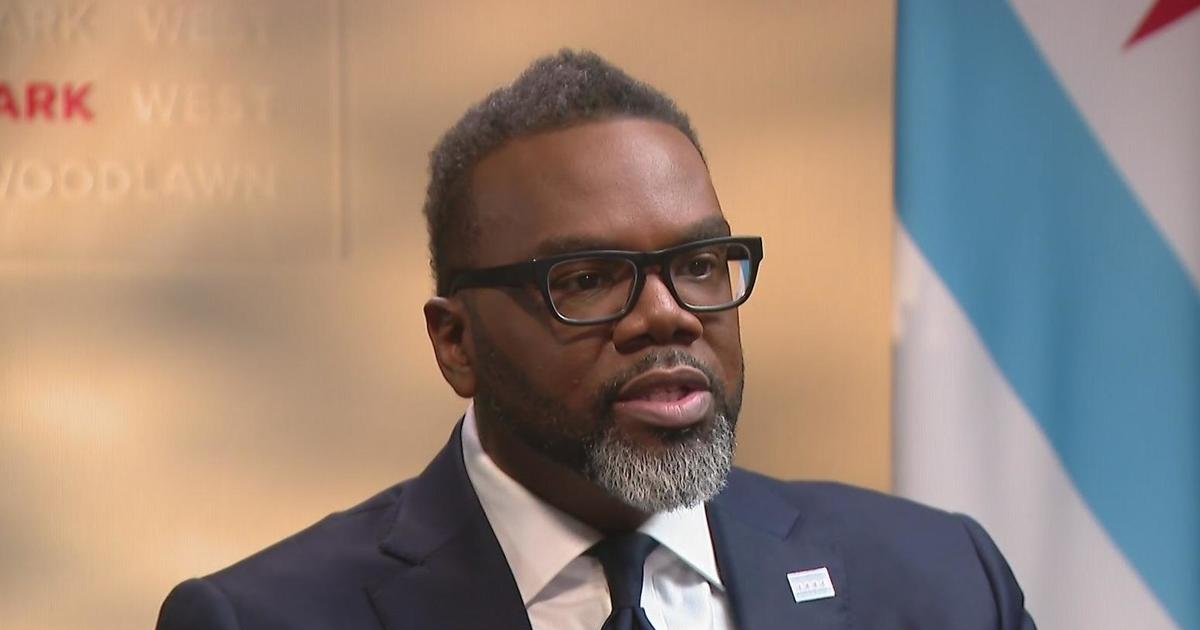City Council Approves 15% Cap On Service Fees Charged By Food Delivery Apps
CHICAGO (CBS) -- The City Council on Monday unanimously approved an ordinance setting a 15% cap on the various service fees third-party delivery companies like Grubhub and DoorDash charge to Chicago restaurants.
With the unanimous vote, the caps go into effect immediately before the Thanksgiving holiday.
Ald. Scott Waguespack (32nd), the chief sponsor of the ordinance, said the measure was the result of several weeks of negotiations with Mayor Lori Lightfoot's office. Waguespack originally proposed a more stringent 5% cap on delivery service fees in April.
"Hopefully this will really be an effort that helps a lot of our restaurants and keeps a lot of them in business," Waguespack said.
The measure would prohibit third-party food delivery companies from charging a delivery fee of more than 10% of the purchase price of an online order from a restaurant. The overall cap on delivery fees, marketing fees, commissions, and other costs for use of such services would be capped 15% of a restaurant's monthly net sales through a given delivery service.
Restaurant owners have said, until now, service fees from such third-party delivery companies could total up to 30%.
"COVID unfortunately exposed what I would consider to be price gouging of restaurants by some third-party apps," Ald. Brendan Reilly (42nd) said. "This is an issue in every major city in America. So it's my hope that this will provide some much-needed relief to a restaurant industry that will be, in some ways, taken advantage of, especially given their heavy reliance now on carryout and delivery to make a very modest bottom line."
Illinois Restaurant Association president Sam Toia last week applauded aldermen for backing the caps on delivery service fees in Chicago, stressing how difficult it is for small businesses to make a profit off of orders through companies like Grubhub and Uber Eats.
"Right now, if you make a $10 order through a third-party delivery service, it's likely a restaurant may get $7 of that order. The delivery service takes the rest," he said. "There's just not enough money coming in right now to be able to afford paying such a high percentage of every meal you serve right to the delivery service. Neighborhood restaurants can't afford to be paying upwards of 30% per order to third-party delivery companies."
Toia said other major cities including New York, Los Angeles, Philadelphia, Denver, and Seattle have approved similar caps on third-party delivery service fees. He said the caps will give restaurants much-needed cash flow and allow them to make ends meet during the indoor dining shutdown.
"Delivery services need to realize that if Chicago restaurants can't survive through this crisis, there will be no restaurants to deliver food from," he said.
In addition to the cap on fees, the ordinance would ban third-party delivery companies from charging higher prices for menu items than set by restaurants, require them to provide customers with a way of sending tips directly to restaurants, and prohibit them from cutting their drivers' pay or garnishing their tips in response to the ordinance.
Violators would face fines of $1,000 to $2,000 per offense.
The requirements would remain in place until indoor dining is allowed at 40% capacity or better for at least 60 days.
Chain restaurants with 10 or more locations operating under a common name would be exempted from the ordinance.
Grubhub has called the proposed fee caps "well-intentioned but counterproductive at a time when restaurants need more support, visibility, and order volume than ever." The company said many restaurants have expressed frustration that the caps will limit their ability to increase marketing services, and noted that other cities that have capped service fees have allowed restaurants to choose to increase marketing services above the set caps, but Chicago's ordinance makes no such accommodations.
"As the pandemic continues, Chicago's restaurants need more support, visibility and order volume than ever. Today the City Council instead chose to limit how local restaurants across Chicago can effectively market themselves to drive demand, which severely impacts how many customers and orders we can bring to these restaurants. The lower order volume also impacts drivers' pay because there is less work available," spokesman Grant Klinzman said in an email.
DoorDash spokeswoman Campbell Matthews also has said capping its commissions could lead to increased costs for customers, leading to fewer orders for restaurants, and fewer opportunities for its drivers.
"This proposal would also remove options available to restaurants by limiting their ability to opt-in to additional services to help their business. City Council should oppose this ordinance and seek alternative solutions that preserve choice for restaurants and ensure Chicagoans can continue to access safe and affordable food delivery," Matthews said in an email on Monday.
However, Ald. Tom Tunney (44th), owner of Ann Sather restaurants, has said he doubts the caps will lead to any reduction in delivery options for restaurants.
"This industry has been growing with providers," he said last week. "I don't see this legislation today, temporary as it is, reducing the supply."
Also From CBS Chicago:


